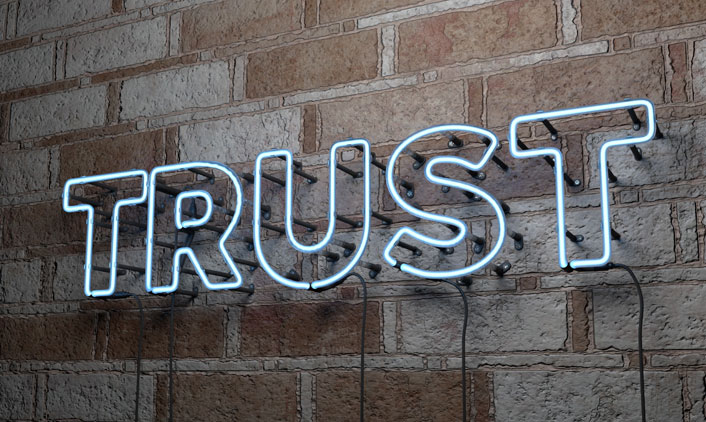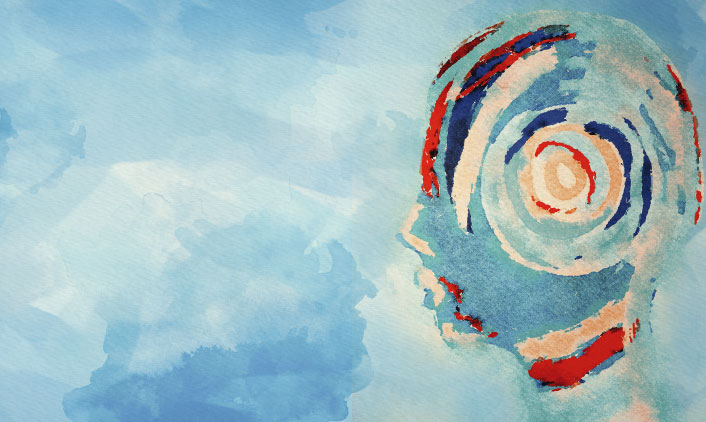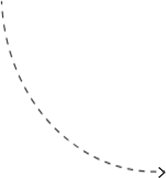In ‘normal’ times, when we approach the end of a year, we take time to reminisce about the past 12 months.
This year, however, was not a normal year.
So instead of revisiting what we know was a pretty rough year for most of us, let’s consider not what happened, but how it changed consumer behaviour and what the lasting impacts may be as we head into 2021.
What we established in 2020, will continue in 2021
For marketers, it’s important to understand the outcomes and consequences of the shared experience we went through this year and the key behavioural changes that occurred. While it’s likely that we may see some of the more extreme impacts decrease, how we live, work and play have changed.
In this blog, we’ll discuss four key behaviours that became commonplace in 2020, one that will become entrenched in 2021 and how you can help your customers navigate the impacts.
How our behaviours changed in 2020
Australia has generally coped well with managing the health crisis, but consumer behaviour will continue to be affected throughout next year in the form of likely economic impacts that will fully reveal themselves in 2021 and lingering health and wellness concerns.
Research showed relatively early in the COVID crisis, Australians experienced fears that sit at the foot of Maslow’s hierarchy of needs:
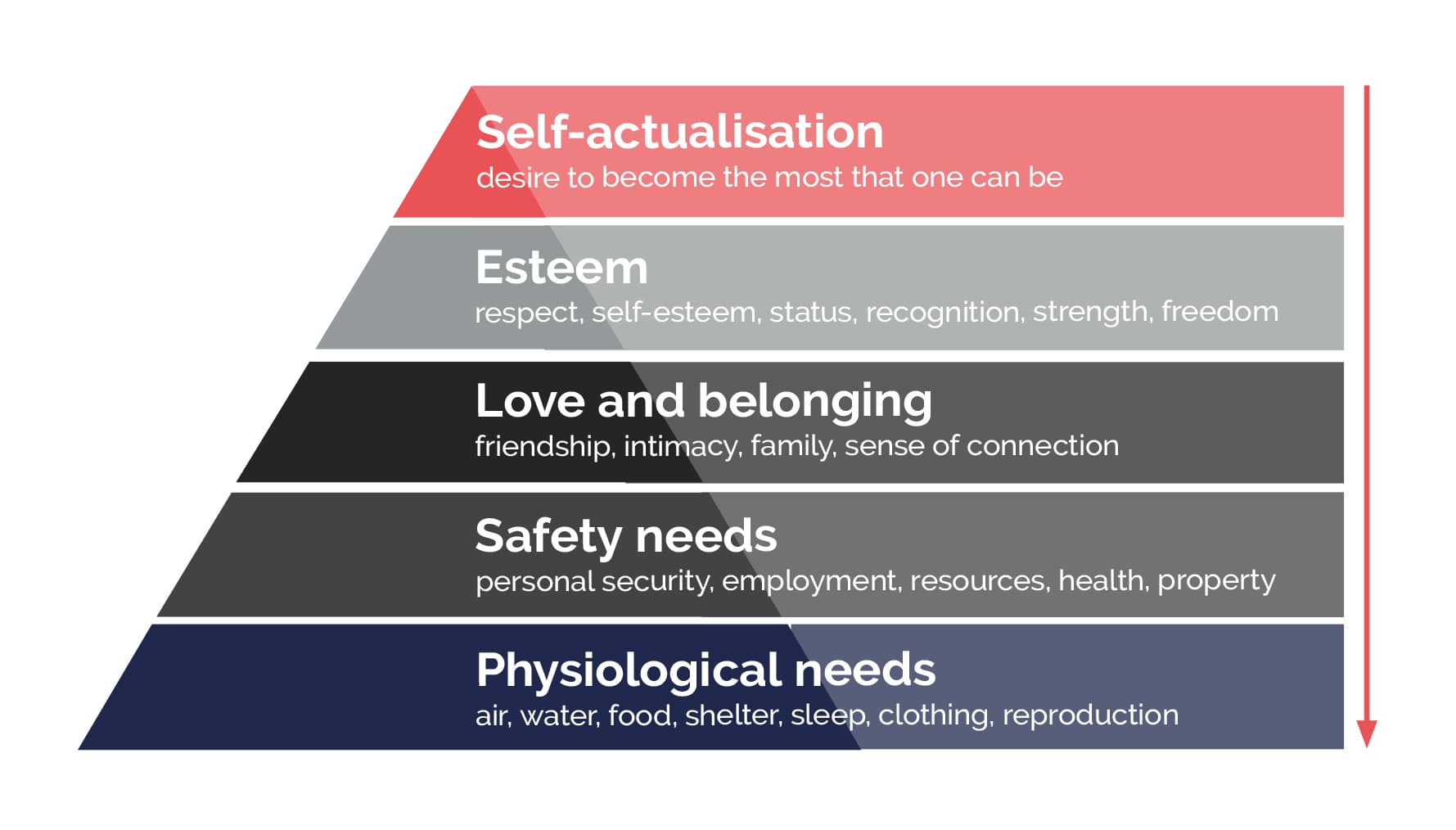
Most of us are very fortunate – we’re not used to worrying about feeding our family, or if we’ll have a roof over our heads next week. However, these base physiological needs were front of mind when we knew little about how COVID would impact on us all.
While Yell’s consumer research showed that these fears receded as it became clearer how the pandemic would impact on Australia, it was still a shock to the system and our behaviours changed accordingly.

COVID amplified the existing, underlying anxiety that has become part of the modern human experience. This Age of Anxiety was born out of an overexposure to noise and information that comes from being almost permanently connected to devices.
Where COVID added another layer of concern was for our health and wellbeing. The implication that those around us carry a threat of harm created a sense of unease that changes how we perceive each other. It made us fearful and angry with each others’ behaviour and kept us at arms’ length from each other.
Even today (18th December 2020), we see that potential distress that may have been caused by a NSW Northern Beaches couple ignoring COVID protocols after taking a test and potentially causing a border closure, ruining Christmas for a lot of people (including me).
Even though generally, the anxiety around the risk of infection may have decreased, health considerations and economic impacts remain and this is where marketers need to be conscious of a change of confidence.
There are three key considerations that you’d be wise to include in your thinking for 2021:
- Our concern about our health and wellbeing remains heightened. We still wash our hands more, sanitise more, and even wear masks from time to time. How is your brand considering this, even if you’re not directly in health?
- Noise is still an issue. One thing that we saw from our 2020 Marketing Survey was that, while financial marketers did a pretty good job in the quality of their communications during COVID, there was a perception that the messaging was focused on you, rather than your customers. There’s still a lot of uncertainty and noise out there, so the best way to cut through is to focus on customers needs.
- Our confidence in making big decisions is shot. Anxiety breeds doubt, which undermines our confidence in making big decisions, especially in a time where circumstances can change day to day. Your customers’ capacity to buy, invest in, or subscribe to your product is likely to have been undermined and should be factored in when considering conversion rates, or lead times.
One important way your brand could help alleviate the anxiety your customers are experiencing is by embracing the actions outlined in the next behaviour, with a focus on expertise.

This year, we’ve seen how to manage a pandemic: stand up New Zealand. And, how not to manage one: take your pick from the UK, US or Brazil.
Those countries that have weathered the storm the best, have benefited from a reliance on the science. A belief in experts that has cut through the noise and provided comfort and direction when we needed it most.
Generally, Australians saw the benefit of that advice and throughout the crisis we’ve also seen them increasingly turn to brands they trust as experts for advice.
For example, NRMA saw an increase in the number of car maintenance calls, and questions about travel restrictions.
PEXA, the conveyancing fintech, saw new and existing clients seek advice about not just digitising their conveyancing processes, but their entire business. For 150 years, the property industry had relied on face to face contract signing, which was made impossible under COVID, and PEXA was who they turned to to understand how to operate within the new environment.
Both of these organisations saw these opportunities to demonstrate their customer aligned purpose, providing expertise that they previously had not considered delivering and that was not necessarily directly related to a product sale.
Yell believes that this trend will continue.
Your customers are seeking expertise from specialists to help them make decisions in the age of anxiety. A good question to ask yourself is: what one problem our customers have that we could position ourselves as the industry experts on, in order to earn and build on their trust?
This is not a promotional solution, but one of delivering on your purpose. Your customers will thank you for it.

When we initially identified this behaviour, we were in the midst of the lockdown.
Nesting was our reaction to the outside world representing a threat. We retreated to a safe space, got closer to other generations and changed our daily routine to one of working, shopping and eating locally most of the time.
While Australia is seeing a gradual reset in behaviour, whereby many of us will return to our workplace in 2021, Yell believes that this shift to an increased nesting mindset will remain for a number of reasons:
- We’ve built the capability to operate effectively in remote workplaces, continuing to deliver great outcomes, despite the disruption.
- Leadership in organisations has increased trust in its employees that they can be effective when outside of an observable office environment.
- Some organisations, for example NRMA, have made operational decisions to increase their working from home, regionally-based workforce, rather than hiring in urban centres. There is a community good to this decision, as well as a positive economic outcome for the organisation.
- We have all got used to gaining time and money by dispensing with the daily commute to work. While challenging to many people, working from home has also created a better lifestyle for most and this will make it hard to revert back to the old routine.
The biggest challenge for marketers will be to adjust their channels to adapt to being closer to their customers. Finding them locally, at different times of day and using smart and innovative new channels will be a significant change that you will need to consider.

This year we realised the sudden acceleration of a 25 year old trend, as companies embraced digital to replace or bolster channels decimated by an inability to interact with customers.
Digitisation in itself is not a new story, however, the speed of digitisation and the extent to which it has changed consumer relationships with brands, is.
In what McKinsey described as the ‘digital dash’, we saw organisations finding a way to do things they previously couldn’t, or wouldn’t, through digital. For example, universities found a way to put all their courses online within 6 weeks of the lockdown being enforced.
We’ve proven that we can make changes to our experience, because we had to. Now, our clients expect that we continue to do so. Their expectations of your digital experience has been reset. They are higher than before and their mindset is very much, ‘if I can do it online, I will…’.
It is very unlikely that this trend will be reversed.
And one behavioural trend to look out for in 2021 – the post-COVID hangover
As we move towards a post-COVID society, i.e. one which has a vaccine in place and the risk of community transition is minimal, we’ll start to see the impacts of our society having been through a prolonged period of cognitive dissonance.
While it’s hard to say exactly how this will manifest itself, we can be certain that there will be a continuing period of mental, as well as financial, recovery.
Remember, many of your customers have experienced long periods of isolation, disillusion and anxiety. They have felt disconnected with their communities and society in general. We’re burnt out and bummed out.
The good news is that there’s a hangover cure that you can be a part of. By providing support and positivity to your customers, we can lift ourselves out of the hangover.
We recommend asking yourself the following questions when considering your campaigns and communications in 2021:
- Are you being relevant to your customers?
Do you know what they need right now and are you providing them with support that will meet those needs, as a trusted expert?
- Are you providing positivity?
Ask yourself if you’re delivering to your purpose and making your community better? Is empathy for your customers’ circumstances coming through in your marketing? Do you have positive stories to tell and are you telling them?
- Are you creating connections?
How are you overcoming the sense of isolation that’s been prevalent throughout 2020? Are you leveraging digital to create connections with your customers? How are you present in your customers’ local communities?
If you ask yourself these questions and have some positive answers, you can be a big part of making 2021 a much better year for everyone.
Reach out if you need to talk
If you need to talk, about any of the topics in this month’s email, or issues your marketing is facing in dealing with the impacts of COVID, please email me at nigel@yellcreative.com. I’m always happy to help.

